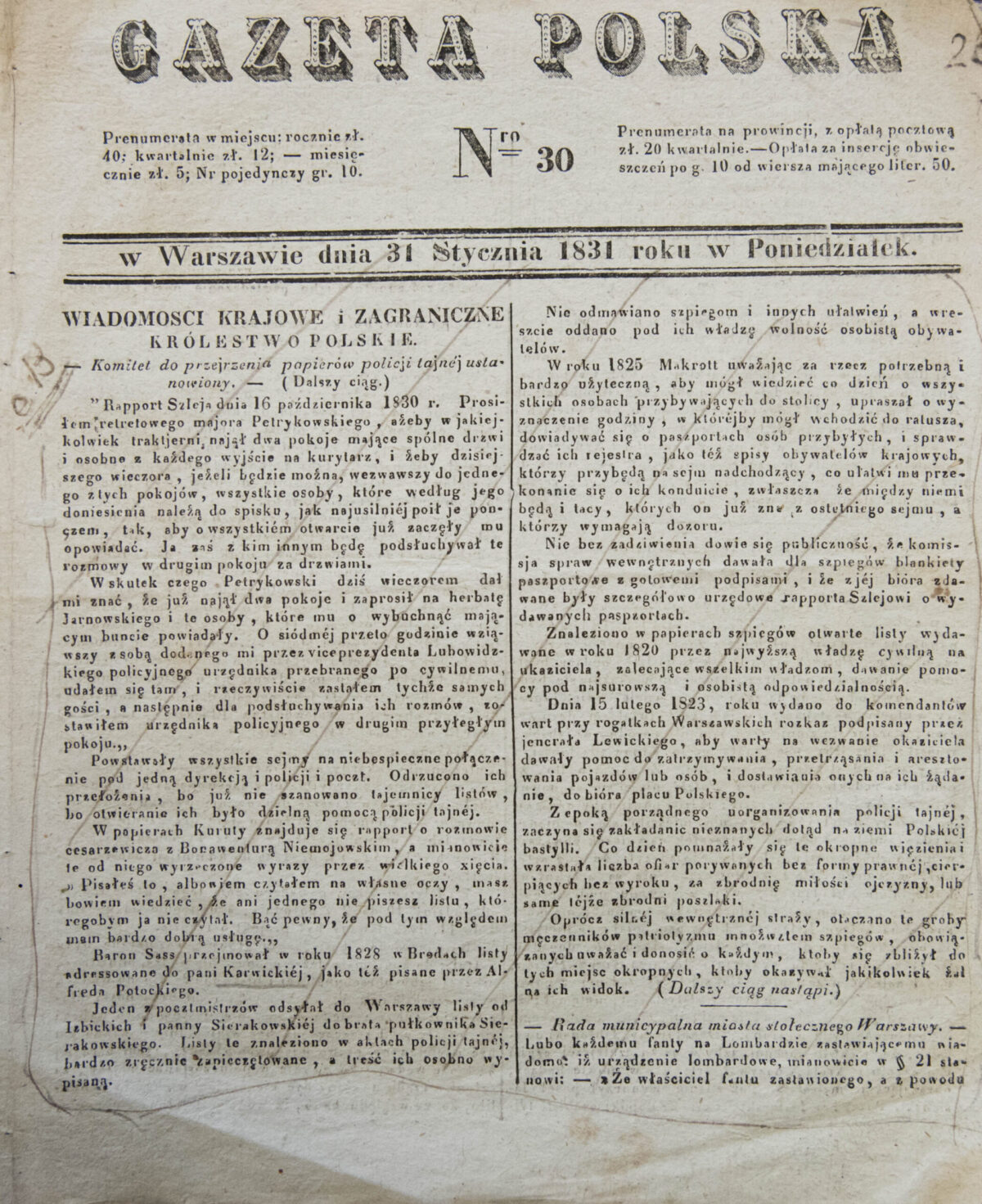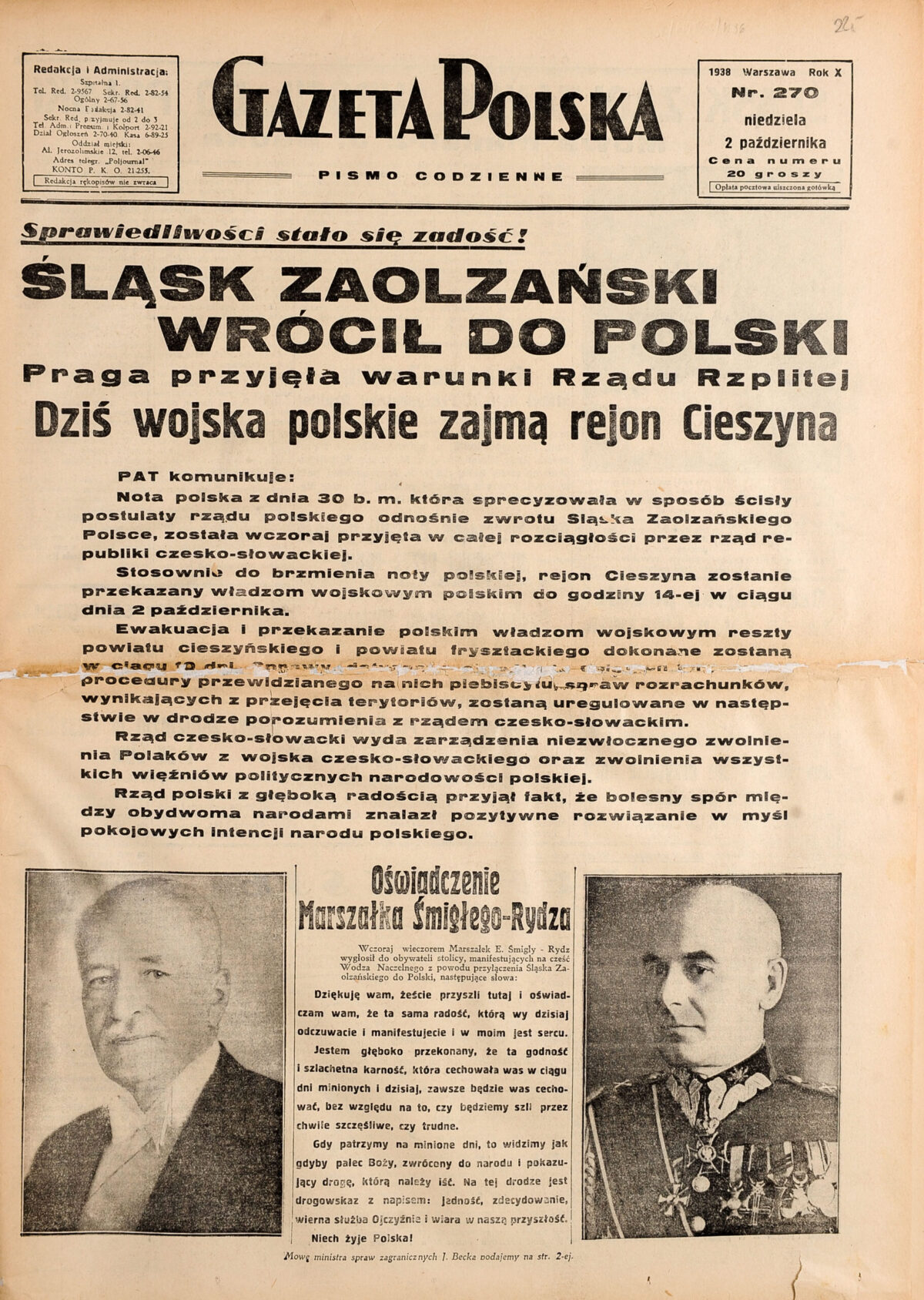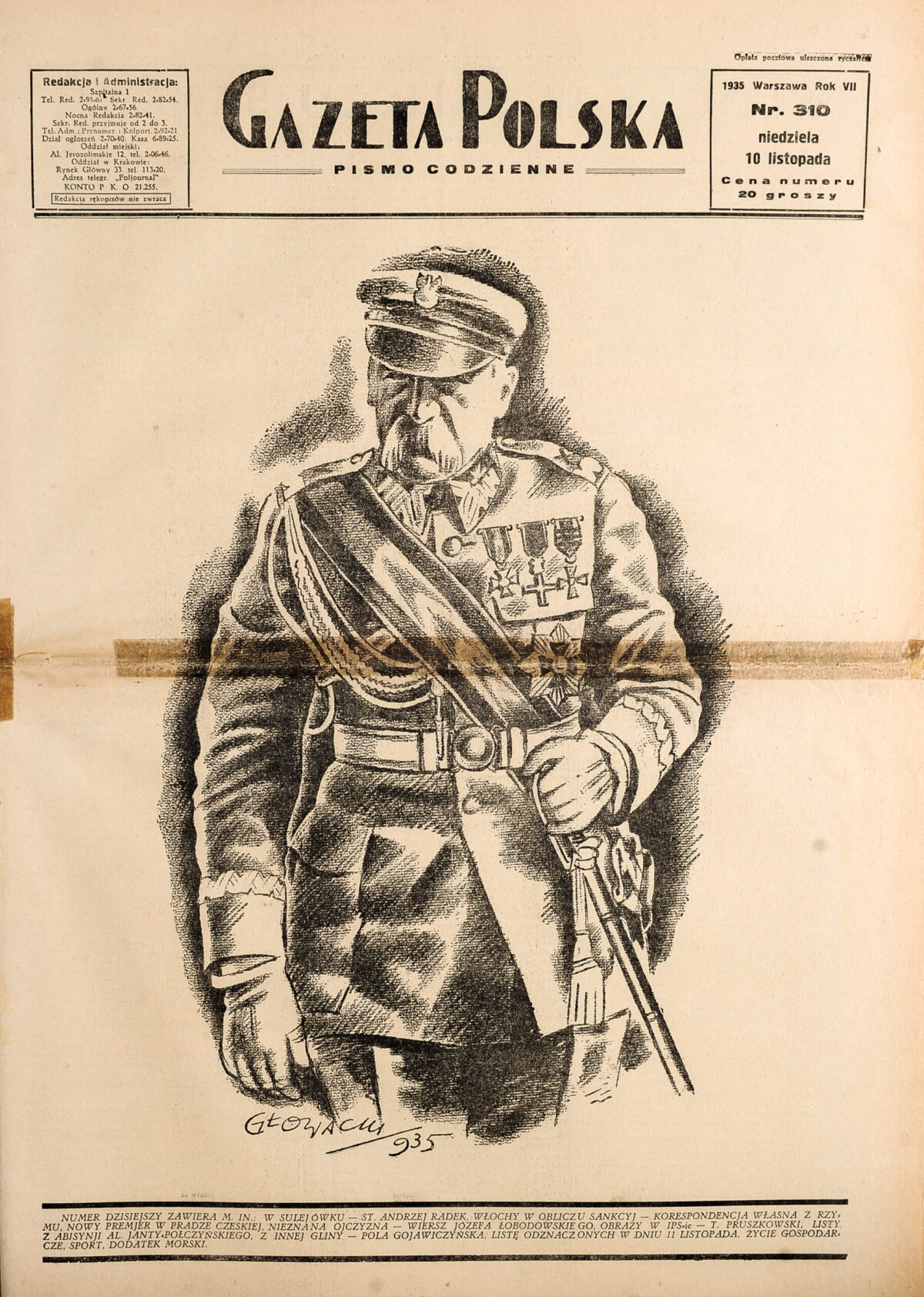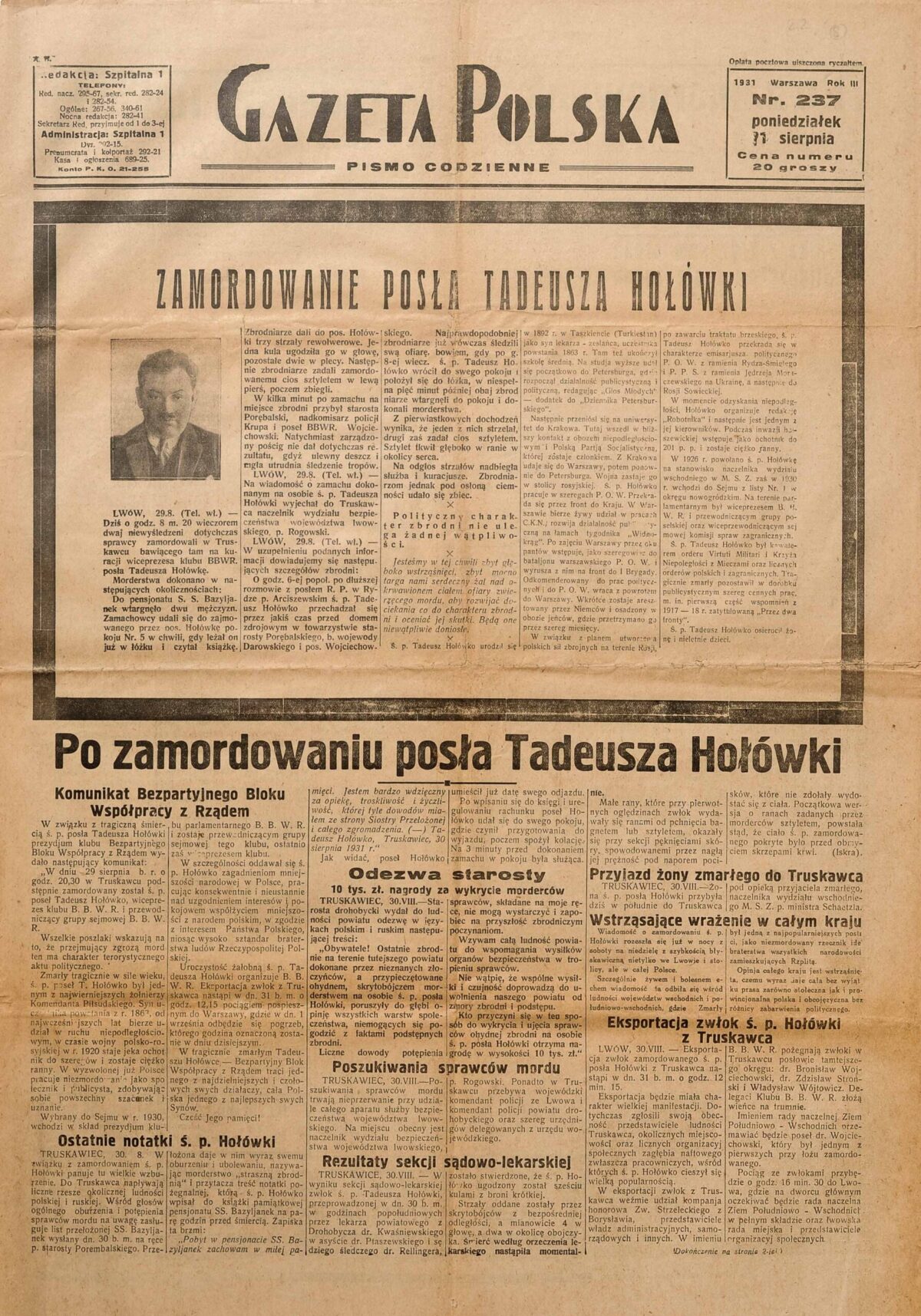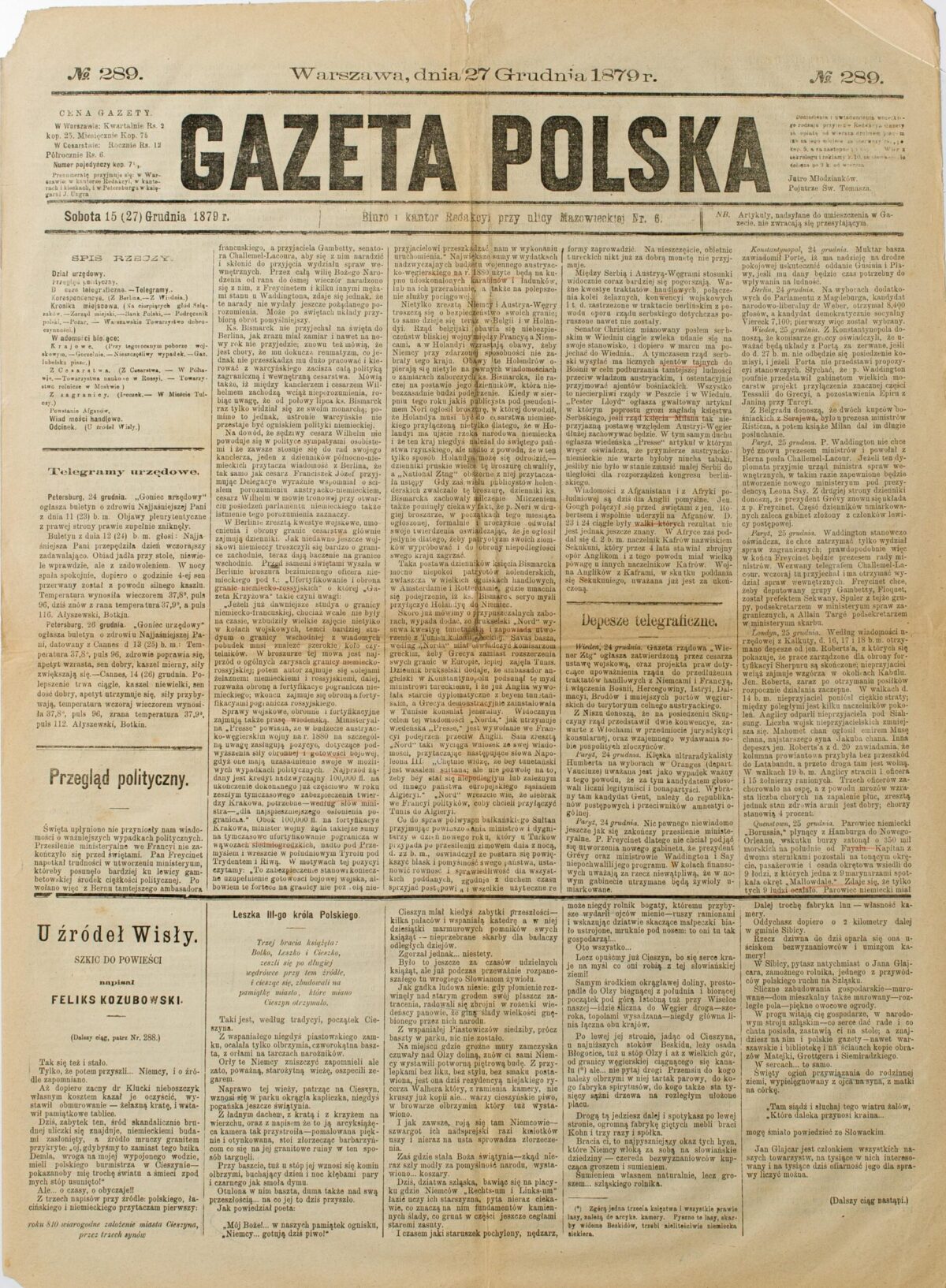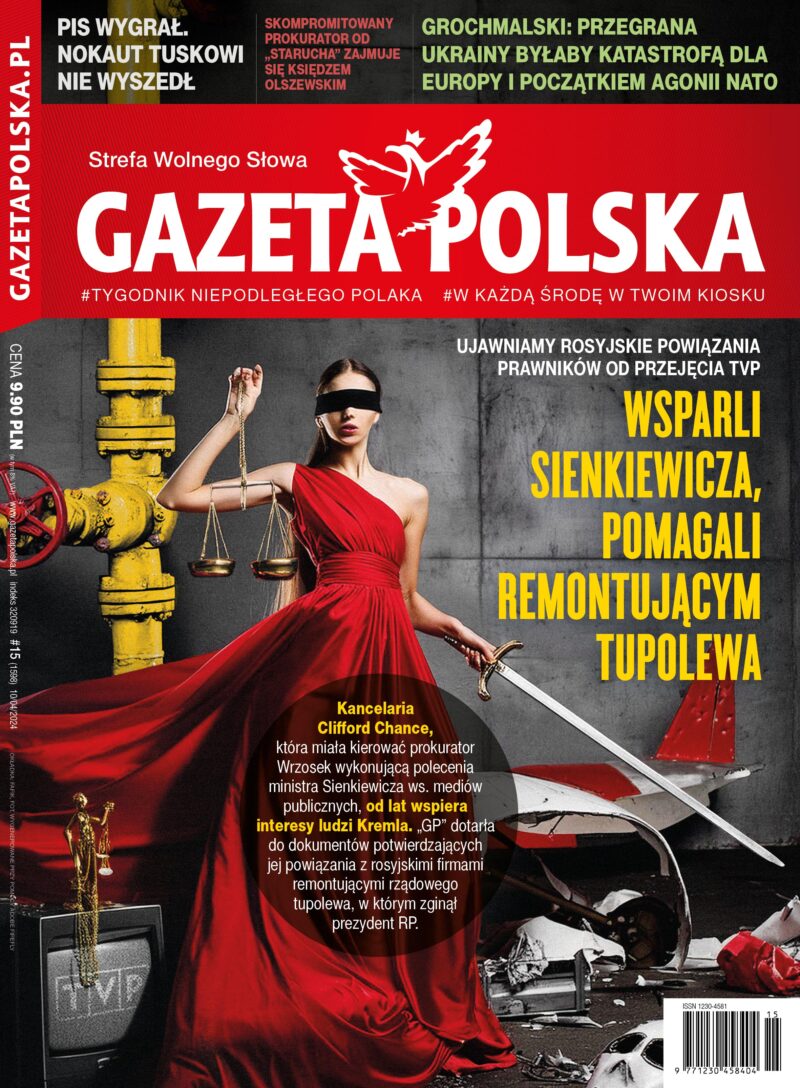


‘Gazeta Polska’ was a political and literary press title whose inaugural issue was published on December 1, 1826 in Warsaw. Its founder and publisher was the journalist Tomasz Gębka, and the first editors – Ksawery Bronikowski and Maurycy Mochnacki – activists of independence organizations and participants of the November Uprising. In the pre-uprising period, thanks to Mochnacki – an outstanding literary critic – ‘Gazeta Polska’ transformed into a tribune of the Romantics, introducing readers to the creative achievements of Adam Mickiewicz, Seweryn Goszczyński, Fryderyk Chopin, Maria Szymanowska, Jan Maksymilian Fredro. With the outbreak of the November Uprising, it became its leading press organ and spoke out in favor of radical military action against Russia.
After the fall of the uprising, ‘Gazeta Polska’ was forced to change the title to ‘Gazeta Codzienna’(daily). In 1859, the Warsaw banker, Leopold Kronenberg, became the owner of the daily, and the writer Józef Ignacy Kraszewski became the editor-in-chief. Under their auspices, the newspaper regained its original title (1861) and became the most widely read magazine in the Kingdom of Poland. During the period of positivism, it was used by the publication of his columns, travel letters, short stories and novels by the eminent writer – Henryk Sienkiewicz. ‘Gazeta Codziennia’ also cooperated with: Eliza Orzeszkowa, Bolesław Prus, Maria Konopnicka, and during the Young Poland period – Władysław Stanisław Reymont. In the second half of the nineteenth century, ‘Gazeta Polska’ took up important social and economic issues, guarded the national idea, opposed Germanization, and was a propagator of native literature and art. On the wave of events of the revolution of 1905, successive editors of the magazine – the journalist and writer Jan Gadomski (1898-1906), and then the leader of the National Democracy, Roman Dmowski (1906) – demanded that Poles be provided with their civil and national rights. In October 1907, after the publication of an article aimed at the anti-Polish policy of the tsarist regime, Gazeta Polska ceased to be published. It was reactivated in 1929, during the Second Polish Republic, becoming the press body of the supporters of the politics of Marshal Józef Piłsudski, and from 1937 – the official body of the National Unification Camp consolidated around General Edward Rydz-Śmigły.
Coming out in the years 1929-1939, ‘Gazeta Polska’ raised political, economic, cultural and literary problems. Its subsequent editors were: Adam Koc (1929-1930), Bogusław Miedziński (1930-1938) and Mieczysław Starzyński (1938-1939). The publication of ‘Gazeta Polska’ was interrupted by the outbreak of World War II. Its last issue was published on September 6, 1939.
